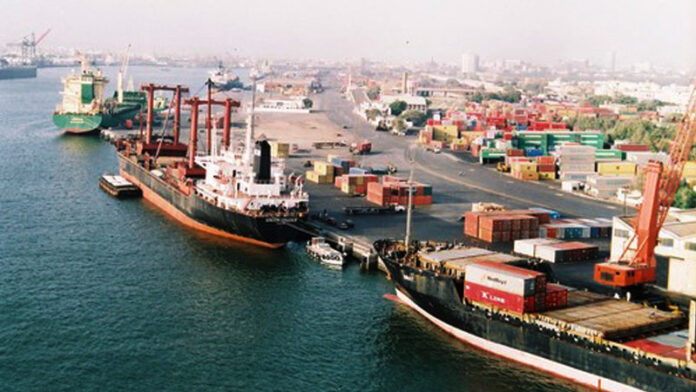ISLAMABAD: The government has finalized a set of recommendations aimed at reducing container dwell time at Karachi Port and Port Qasim, in an effort to improve cargo clearance efficiency and alleviate congestion at the country’s two major seaports.
On Tuesday, a high-level committee presented these proposals to the Federal Minister for Maritime Affairs, Muhammad Junaid Anwar Chaudhry. According to a statement released by the Ministry of Maritime Affairs, Anwar instructed that the recommendations be forwarded to the Federal Board of Revenue (FBR) the same day and directed the FBR to prepare an implementation plan within two weeks.
The committee, established by Anwar and chaired by Umer Zafar Sheikh, Additional Secretary at the Ministry of Maritime Affairs, includes representatives from Karachi Port Trust (KPT), Port Qasim Authority (PQA), Pakistan Customs, terminal operators, FBR, and other relevant stakeholders.
During the meeting, the federal minister emphasized that the plan aims to align Pakistan’s port operations with international standards, ensuring faster clearances, smoother trade flows, and reduced operational costs.
Anwar also restructured the committee, assigning it the responsibility of coordinating with the FBR and monitoring progress within the specified timeframe.
The recommendations target several bottlenecks in the clearance chain, addressing delays in goods declaration filing, adjudication, laboratory testing, transportation, examination, auctioning, and gate-out processes.
Key measures proposed include promoting early or pre-arrival filing of goods declarations, shortening the filing window, and introducing fines for late submissions. Virtual hearings for adjudication and the use of rapid screening technologies to expedite testing have also been suggested.
To ease congestion at terminals, the committee recommended faster auctioning and disposal of overstayed cargo, expanded grounding capacity, and increased deployment of labor and customs examiners. Around-the-clock operations for customs assessments, examinations, laboratory work, and shipping services were also proposed.
Further infrastructure improvements include the development of truck holding areas, dedicated rail freight corridors, and multi-modal transport systems to reduce dependence on roads.
Digitalization is another central element of the strategy, with proposals for AI-based risk profiling of importers, a dedicated stakeholder portal within the WeBOC system, e-auction facilities, and real-time communication channels to link terminals, traders, and transporters.
The committee also suggested reducing the free period for containers under the green and yellow channels from five days to three, enforcing strict gate-out timelines, and introducing penalties for non-compliance.




